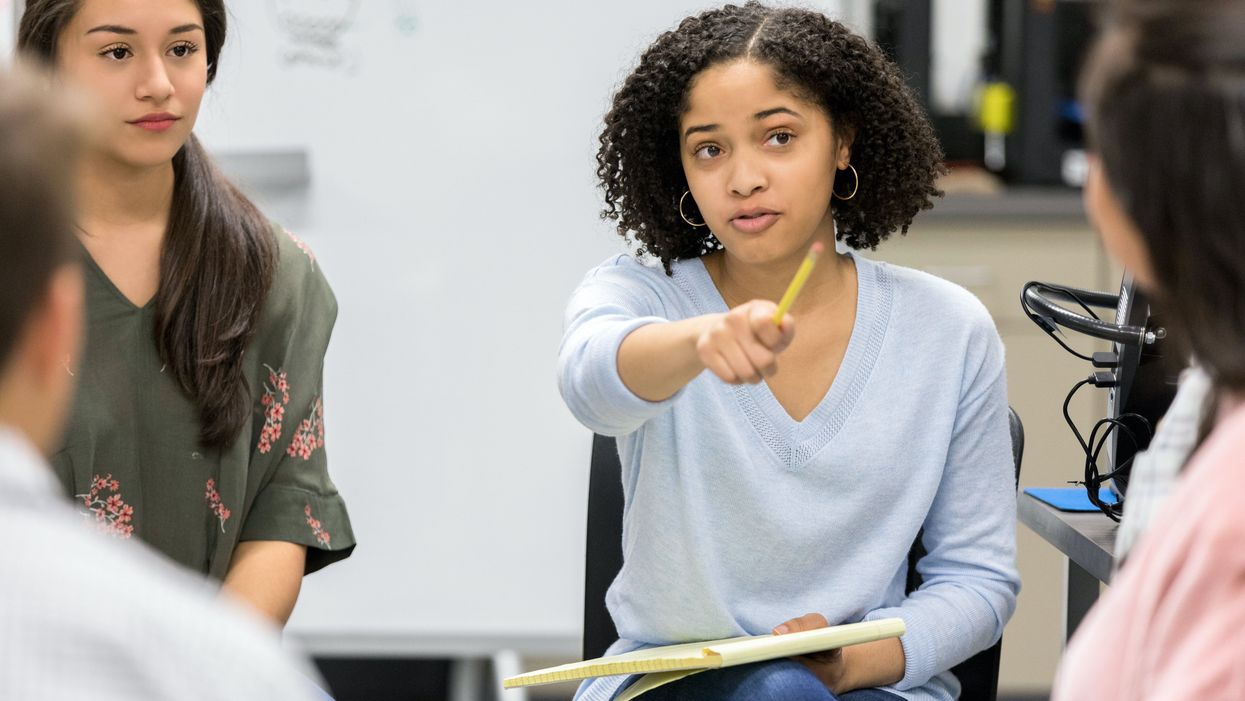Jennette is a junior psychology major at the University of Pittsburgh and president of the school's chapter of Bridge USA, a national student-run organization seeking to depolarize campuses and boost their civic engagement.
It is no secret that American civics education misses the mark for the majority of the population. Only 36 percent of Americans can pass the government's test for would-be citizens, for example, and only 39 percent of our citizens can name all three branches of government.
While this is concerning enough by itself, there is a deeper problem masked by looking only at the averages. The scores are worse for younger adults, the leaders of future decades whether we like it or not. To adequately prepare these leaders, we need to expand civics education beyond the classroom.
Younger Americans have a significantly worse civic education than both the national average and their older counterparts. The 2018 report on the citizenship test, by the Woodrow Wilson National Fellowship Foundation, found only 19 percent younger than 45 would pass — but the rate was 74 percent of those older than 65. A Pew Research Center civil knowledge survey, which categorized results as low, medium and high, found 41 percent of Americans 18 to 29 had low scores (9 points higher than the national average). Only 14 percent of Americans in the same age group had high scores — 9 percent lower than the national average.
All this is particularly concerning as a number of 2020 Democratic presidential candidates professed an openness to lowering the voting age nationwide as a way to get teenagers more politically engaged.
While improving the quality of civic education in the classroom is important, community-based civic engagement is a necessary component to a well-rounded and diverse knowledge base. There is a real need to provide students with opportunities for real-world applications of abstract concepts about civic life, and to imbue them with civic skills and attitudes that cannot be easily taught in a classroom.
The 2018 Brown Center Report on American Education illustrates this concept well and highlights these core components of a good civics education:
- Civic knowledge — an understanding of government structure, government processes and relevant social studies knowledge and concepts.
- Civic skills — abilities that enable students to participate in a democracy as responsible citizens.
- Civic dispositions — attitudes important in a democracy such as a sense of civic duty and concern for the welfare of others.
While civic knowledge is the main focus of most civics courses, the other two play minor — if any — serious roles in the classroom. While civic skills and dispositions can be taught in schools by arranging policy debates, mandating community service and conducting mock trials or campaigns, the isolated nature of the academic environment limits students' ability to connect these skills to their personal lives.
Community engagement can fill that gap by providing young people with a personalized civics education that connects them to the broader community, giving civics more relevance than in the classroom.
Community engagement in civics education can occur in two sorts of organizations — pre-existing ones with abilities to nurture "civic dispositions," and groups created with what would be considered "civic skills" in mind.
The first would include athletic, religious and advocacy groups. Each can encourage students to develop attitudes necessary for a functioning democracy by cultivating cultures of positive self-sacrifice, compromise and commitment to the greater community.
For example, athletic teams impart a sense of duty on students to work as a group and uphold their school standards, and the athletes often lobby the school board for funding and encourage parents to vote on local school policies. Faith-based groups encourage young people to be charitable and honest, and to work for the betterment of vulnerable members of their community such as the hungry and homeless. Advocacy groups such as sustainability clubs teach the value of small-scale local initiatives as well as larger projects — and how to research, craft and implement policies in their schools, neighborhoods or home towns.
Each type of organization, in other words, already fosters attitudes compatible with democratic norms. And, by emphasizing these connections, they can help students see how civics classes relate to their own lives with greater clarity.
The second sort of group focuses on providing students the necessary tools to be a productive member of a democratic society. These include values that must be fostered over time, such as a willingness to engage in dialogue as well as respect for different opinions and the people who hold them.
This is where organizations such as ours step in. We provide a safe space for the individual but a critical space for ideas. By giving the students the opportunity to deal with difficult topics in a constructive environment, they can develop an appreciation for positive civic engagement. By fostering a community built on mutual respect, rigorous dialogue and solution-oriented strategies, young people will be able to enhance their civic education before entering the often-toxic public discourse.
We can counter young Americans' poor retention of civics through working with community groups as well as organizations such as Bridge USA to create a comprehensive educational experience. By bringing civic education out of the classroom, students will be better prepared to make positive contributions to their communities while having a stronger understanding of American civic values.



















